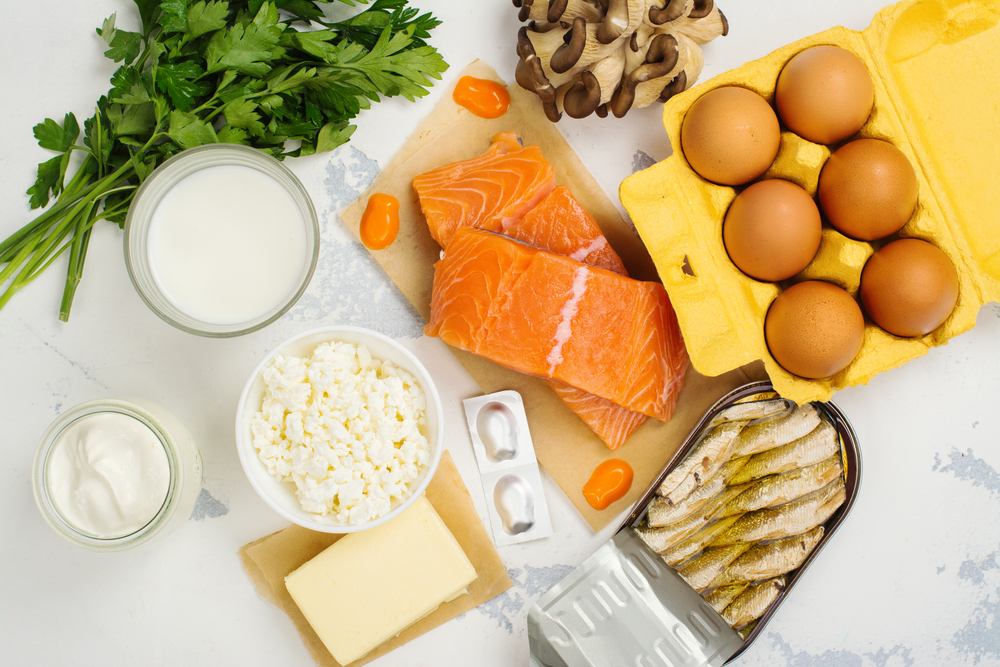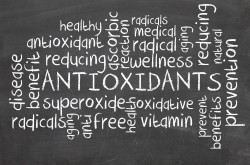By: Amanda Belo
It’s normal to feel tired. After all, many of us lead busy lives and are constantly pulled in a hundred different directions! However, if you regularly find yourself feeling tired to the point of feeling exhausted then it might be time to take a closer look at ways to boost your energy.
What is Fatigue?
Fatigue is having a lack of energy, physically or mentally, that leaves you feeling exhausted. This can be a result of many different things:
- Poor diet
- Dehydration
- Inadequate sleep quality
- Stress
- Inactive lifestyle
- Depression or Anxiety
- Hypothyroidism/Underactive thyroid
Whatever the reason, you should consult with a physician first to rule out any potential medical issues or concerns you may have.
Energy-Boosting Supplements
Many health professionals suggest that fatigue may result from certain nutrient deficiencies. In today’s highly-processed world, that doesn’t come as a huge surprise! If you aren’t getting necessary nutrients that favor energy and vitality, your body may not have the support it needs to to say focused and productive all day.1
According to the 2015-2020 Dietary Guidelines for Americans, about 75% of Americans population has an eating pattern that is low in vegetables, fruits, dairy, and oils. They also mention that most Americans exceed the daily recommended intake for added sugars, saturated fats, and sodium.2 These eating patterns definitely are not doing you any favors in terms of living a healthy lifestyle, let alone keeping your energy up. Let’s take a look at some of the nutrients that have been well-researched to be connected to energy.
Iron:
Iron is important in producing hemoglobin, which helps deliver oxygen throughout the body. If your cells do not have enough oxygen, your energy levels will be low. Iron deficiency is one of the most common deficiencies in the world, and fatigue and low energy are the most common symptoms.3 Low red blood cell count is also a sign that you are deficient in iron and is what’s known as iron deficiency anemia.
Food Suggestions:
- Lean meats
- Seafood
- Eggs
- Spinach
- Broccoli
- Tofu
- Chickpeas
- Beans
- Lentils
- Fortified cereals
Magnesium:
Magnesium is involved in more than 300 metabolic reactions, including protein synthesis, muscle and nerve function, and energy production.4 It also is involved in converting glucose to energy, as well as creating and storing ATP (a molecule that supplies cells with energy once broken down.1
Food Suggestions:
- Almonds
- Whole grains
- Banana
- Oatmeal
- Brown rice
- Avocado
- Black beans
- Raisins
- Spinach
- Halibut
B Vitamins:
B vitamins contribute to the process of producing energy in the body. They function to metabolize carbohydrates, fats, and proteins from food intake and convert into energy for the body to use.5 All eight B vitamins work together to contribute to energy production. If your diet is lacking in any of these vitamins, your metabolism may be affected.
- B1/Thiamine:
When carbohydrates are digested and metabolized, they are broken down into glucose, and thiamine helps to break down glucose into energy.6 - B2/Riboflavin:
Riboflavin converts the nutrients (i.e. carbohydrates, proteins, fat) you eat into glucose, fatty acids, and amino acids for energy; also acts as an antioxidant to combat free-radicals.6 - B3/Niacin:
Assists in the process of metabolizing carbohydrates and fatty acids, especially during exercise.6 - B5/Pantothenic acid:
Helps the body convert fatty acids into energy6; also essential to producing red blood cells.7 - B6/Pyridoxine:
Assists in the process of metabolizing food to energy8; supports cognitive development and function, helps produce hemoglobin (delivers oxygen throughout the body) and supports a healthy nervous system.6 - B7/Biotin:
Essential to converting carbohydrates, fat, and protein into energy, as well as amino acids into glucose.6 - B9/Folic acid:
Folic acid is important in the production of red blood cells6 (low levels of folic acid is folate-deficiency anemia9); also helps break down protein into energy6 - B12/Cobalamin:
Cobalamin assists in energy production and red blood cell production. Like vitamin B6, it also helps in the process of delivering oxygen throughout the body by helping to make hemoglobin.10
Food Suggestions:
- Fortified cereals
- Whole grains
- Black beans
- Tuna
- Eggs
- Liver
- Lean meats
- Poultry
- Milk
- Bananas
- Leafy green vegetables
- Peas
- Tempeh
- Potatoes
Omega-3 Fatty Acids:
The three main omega-3 fatty acids are alpha-linolenic acid (ALA), eicosapentaenoic acid (EPA), and docosahexaenoic acid (DHA). ALA can be made by your body, while EPA and DHA intake can be through food diet or dietary supplements. Omega-3 fatty acids are stored in the body or used as energy. Omega-3 fatty acids are widely known for many health benefits, including supporting cognitive health.
Food Suggestions:
- Soybeans
- Salmon
- Halibut
- Mackerel
- Walnuts
- Fortified dairy
- Eggs
- Flaxseed
- Peanut butter
Antioxidants:
Antioxidants function to protect cells and are essential to mitochondrial energy production. Mitochondria take in nutrients and break them down into cellular energy so cells function properly.1 Antioxidants are beneficial in protecting against chemicals that may lead to fatigue and weakness.11
Vitamin C is a common antioxidant that has been shown to support brain health and healthy energy levels. Other antioxidant nutrients include vitamin E, beta-carotene, and selenium.
Food Suggestions:
- Pecans
- Berries
- Raisins
- Red grapes
- Kale
- Spinach
- Beets
- Broccoli
- Bell peppers
- Tomatoes
- Cherries
Of course, there are also lifestyle changes you can adopt as well! Exercise, including walking, has been shown to have positive effects on energy, mental health, and sleep quality. With that, it is important that you are keeping a close eye on your diet as well. Drinking plenty of water to stay hydrated and eating a balanced diet ensures your body has the nutrients it requires. Simply put, if you aren’t taking in the necessary nutrients for your body to function well then it is bound to catch up with you in some way down the line. Cutting out or cutting back on sugar is also a helpful dietary change that might surprise some! Sugar may give you an initial burst, but the crash that will come later isn’t something to get excited about.
Aside from diet, it’s also important that your healthy and energy-promoting lifestyle includes making time for relaxation. Find out which activities give you a sense of calmness, enjoyment or relief and make time for them on a regular or semi-regular basis. This can include meditation, reading, listening to music, watching a movie, cooking, or even just talking to a friend!
How do you fight fatigue?
Tell us in the comments below!
These statements have not been evaluated by the Food and Drug Administration. This product(s) is not intended to diagnose, treat, cure or prevent any disease.





Comments (0)